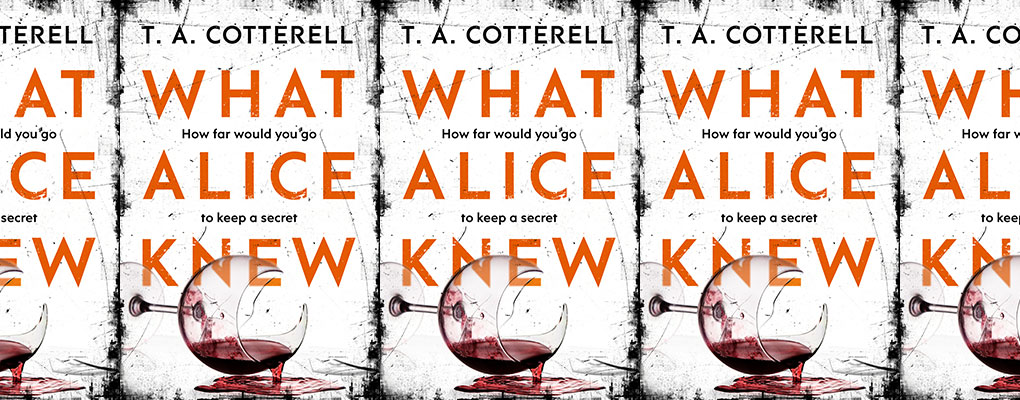Books
Dear Reader: a letter from T A Cotterell
Dear Reader,
In 2009, I was circling around an idea for a novel. I had noticed that most psychological thrillers and crime novels were written from the perspective of, or empathised with, the detective trying to solve the case or the next victim. I wanted to write from the perspective of the perpetrator. I had the germ of an idea for a plot but I wasn’t sure what I wanted my novel to be ‘about’.
One night I was having supper with a very close relative. We were, for some reason, talking about who she knew in Bath. She reeled off a list of names I may have heard before, having long lost a passing interest in people I had barely known even when young. At the end of the roll, there was a name I had never heard before. “Who’s he?” I asked, more in the spirit of showing interest rather than any genuine desire to know. There was a long pause.
My relative is shortish and widish and always beautifully dressed. She wears a hat, a brooch and gloves and looks as if she is going to a village fete circa 1956. She has never owned or used a computer, sent a text or answered her mobile phone, but she talks, laughs and gossips enthusiastically and, after a few glasses of French wine, can be delightfully indiscreet.
I waited, while she appeared to wrestle with her conscience. Eventually she said,
“He was my handler in MI6.”
It transpired that for thirty years through the Cold War, from before I was born until after I left university, my relative had been a ‘mule’, delivering and picking up packages behind the Iron Curtain. Budapest was her manor. In addition to French, she spoke Hungarian fluently, workable Russian, passable German. She had searched the flats of suspected double agents, seen a contact assassinated in a theatre, worked with locals against the Soviets.
Her revelation raised many questions. They related not only to the nature of the work and her extraordinary experiences, but also to issues of truth that go to the heart of the familial contract. How much should parents tell their children about their lives? When should they tell them? What are the consequences of a secret at the heart of a family? A door opened.
Unfortunately, I started writing before I fully understood the ramifications. Originally What Alice Knew was written in the third person. It was only after I completed it I realised a story concerning the collision between the limitations of knowledge and a near-obsessive desire for truth in a protagonist would work better in the voice of that protagonist. Accordingly, I rewrote the novel in its entirety from Alice’s perspective.
If I have succeeded in what I set out to do, What Alice Knew is hopefully an unusual, disconcerting novel: a page-turner that ultimately turns on a character and an idea rather than a smoking gun or a set of fingerprints.
T A Cotterell
1 Comment
Join the discussion
Please note: Moderation is enabled and may delay your comment being posted. There is no need to resubmit your comment. By posting a comment you are agreeing to the website Terms of Use.



A brilliant book that I have just finished and am looking to order the next book by this refreshingly inspired author. I love the perspective and questions the plot poses – wonderful.